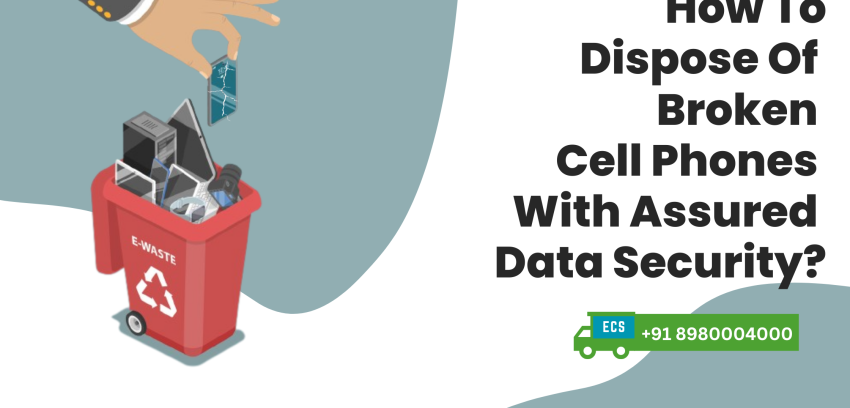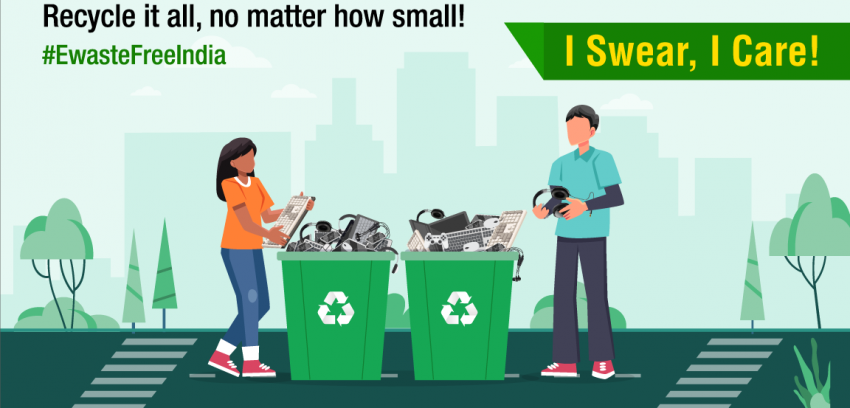In today’s digital-first business world, data breaches continue to be one of the most significant threats to enterprises, resulting in financial losses, legal penalties, and irreversible reputational damage. As organizations upgrade their IT infrastructure and retire outdated devices, the safe and compliant disposal of sensitive data becomes not just a best practice but a legal and operational necessity. Partnering with a certified data sanitization services company ensures that all confidential information is thoroughly and securely erased, helping businesses meet regulatory requirements and protect themselves from potential data leaks.
This is what Data Sanitization Services are all about. These services can ensure that businesses maintain compliance regulations and minimize security risks by making sure that there is no sensitive information stored on the old storage devices, and contribute to the responsible disposal of IT assets. This blog will discuss the recent trends, methods, and tools that will power the data sanitization process in 2025, particularly concerning Data Destruction in India.
The Urgent Need for Data Sanitization in 2025
A recent 2025 report highlights growing pressures on organizations due to AI integration, sustainability goals (ESG), evolving privacy regulations, and rising data disposal costs. Enterprises worldwide are actively eliminating ROT (Redundant, Obsolete, and Trivial data) to reduce the attack surface for cyber threats.
In India, this urgency is underscored by new mandates under CERT-In, SEBI, IRDAI, and the Digital Personal Data Protection Act (DPDP Act). These regulations demand not just secure data disposal but also auditable proof and compliance reports. As a result, Data Destruction in India has evolved into a regulated, formal process where only certified data sanitization companies are trusted partners for secure disposal.
Key Data Sanitization Methods Every Business Should Know

A wide array of data sanitization techniques is available, each suited for different needs and regulatory contexts. Below are the four most widely adopted data sanitization methods used by professional service providers:
1. Physical Destruction
This method involves physically damaging storage devices using industrial shredders or degaussers. It’s the most irreversible form of sanitization but renders the hardware unusable. Often used when regulatory requirements demand absolute data destruction, this method is suitable for highly sensitive data but not environmentally sustainable or cost-effective for every scenario.
2. Data Erasure
A more eco-friendly and compliant method, data erasure uses specialized data sanitization tools to overwrite each bit of storage with random values (0s and 1s). It ensures complete erasure without damaging the device, making it ideal for resale or reuse. Reputable data sanitization companies provide detailed audit logs and certificates after this process.
3. Cryptographic Erasure
This advanced method encrypts all data using strong encryption (typically 128-bit or higher). Once the encryption key is discarded, the data becomes permanently inaccessible. While fast and scalable, this method may not satisfy all regulatory requirements as the original data remains on the device.
4. Data Masking
Often used in development and testing environments, data masking replaces real data with fictional but structurally similar data. It’s a powerful data sanitization technique for live systems, but may not be suitable as a sole method for decommissioned devices.
The Importance of Data Discovery Before Sanitization
Before any sanitization takes place, it’s critical to conduct a thorough data discovery process. This step identifies all data repositories across systems, cloud storage, and physical devices. Knowing what sensitive data exists and where allows companies to create a prioritized data sanitization process that is efficient, compliant, and comprehensive.
Modern data discovery platforms enable:
- Scanning of endpoints and cloud systems
- Classification of sensitive or regulated data
- Integration with sanitization workflows for seamless execution
Regulatory Compliance and Certified Data Sanitization Companies
Compliance with international and national standards is a key part of any data destruction initiative. Businesses must choose data sanitization companies that are certified by recognized authorities such as:
- NIST 800-88 (U.S. standard for media sanitization)
- NAID AAA Certification
- Indian data protection and compliance regulations like the DPDP Act
Trusted providers offer:
- On-site and off-site data sanitization services
- Chain-of-custody documentation
- Certificates of destruction
- Secure transportation and handling
Leading players like ECS Environment and E-Waste Recyclers India are known for their certified Data Destruction Services in Bangalore, Data Destruction Services in Hyderabad, Data Destruction Services in Kolkata, and Data Sanitization in Mumbai.
Choosing the Right Data Sanitization Services for Your Business
Whether you’re a fintech firm in Mumbai, an IT company in Bangalore, or a manufacturing enterprise in Hyderabad, choosing the right data sanitization services should depend on your:
- Volume of devices for disposal
- Level of data sensitivity
- Compliance requirements
- Environmental sustainability goals
Here are some best practices:
- Opt for onsite sanitization for high-security data.
- Use offsite services for large-scale asset disposal.
- Always request audit logs and sanitization certificates.
- Choose companies that use certified data sanitization tools and methods.
Final Thoughts
With the current age characterized by data-driven decision making and dynamic cyber risks, organizations should focus on safe and compliant data disposal. A professional data sanitization service allows for reducing the risks and achieving compliance with legal requirements, as well as increasing the lifecycle of valuable IT assets.
By partnering with a certified data sanitization company, your organization can protect its brand, ensure customer trust, and stay on the right side of evolving regulations in India and beyond.
Frequently Asked Questions (FAQs)
What is the meaning of data sanitization and why is it needed?
Data sanitization refers to the process of rendering data on a storage medium unrecoverable in order to prevent unauthorized access to the data. This is essential in order to avoid data breaches, meet regulations and properly dispose of IT assets.
Which method is best for data sanitization?
It depends on your needs. Physical destruction is best for high-security needs; data erasure is ideal for reuse; cryptographic erasure suits fast disposal, and data masking works well during ongoing operations.
How do I choose a reliable data sanitization company in India?
Look for companies certified by NIST, NAID, or those compliant with Indian laws like the DPDP Act. Also, ensure they offer audit trails, chain of custody documentation, and various onsite/offsite service options.
Do we have environmentally friendly data sanitization?
Yes. Erasure of data is environmentally friendly as it does not damage the machine. It enables the refurbishment and reuse of assets, which is sustainable.
Are there locally based data destruction services in Indian cities?
Yes, The main metros, including Bangalore, Hyderabad, Kolkata, and Mumbai, have access to the services, and the providers secure on-site or efficient off-site sanitization services.





